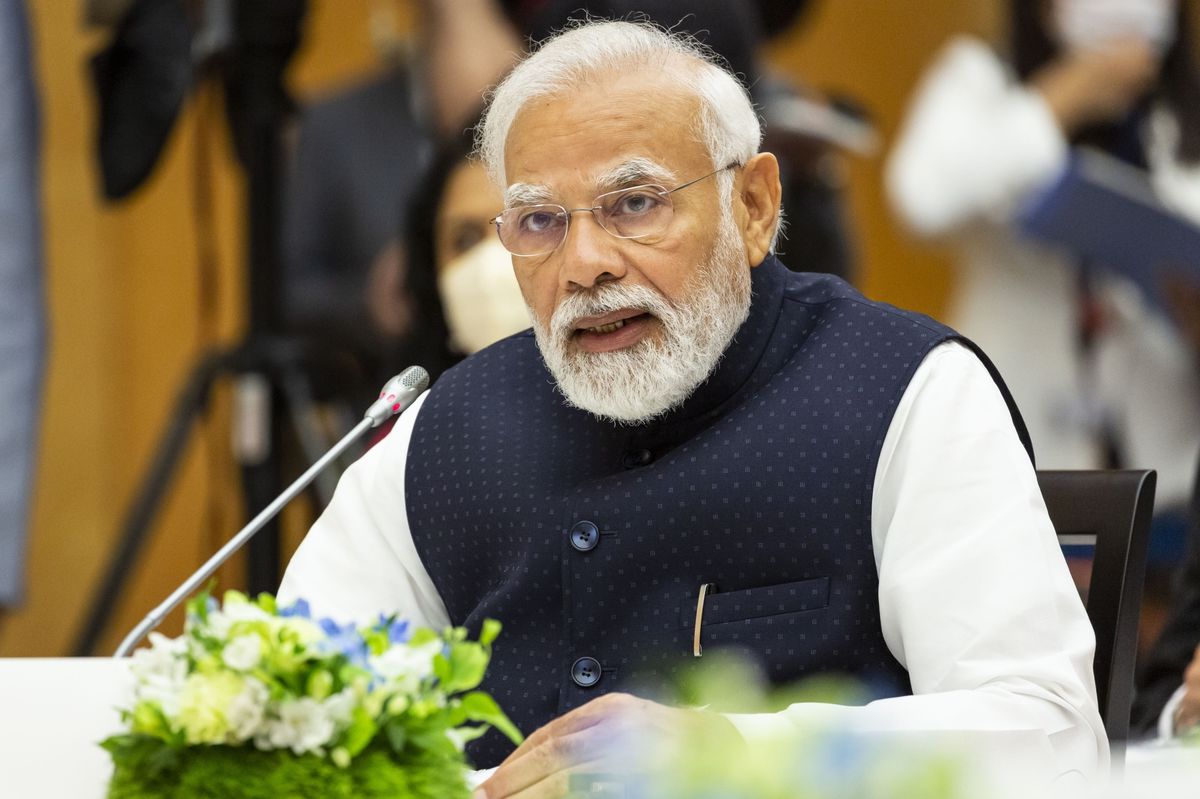New Delhi will work more closely with countries like the US, the UK, France, Australia, Japan, Germany to deal with challenges posed by a belligerent Beijing.
NEW DELHI: Even as China continues to vigorously and violently pursue its aggressive agenda in areas ranging from the Line of Actual Control (LAC) to the Indo-Pacific, and the Indian Ocean Region (IOR), India has decided to work on a much more comprehensive and effective plan to deal with assertive Beijing. While giving fillip to the military
“Though several other issues of bilateral importance would be discussed once PM Modi meets the leaderships of these powerful countries, the focus will be on Chinese aggressions,” diplomatic sources told The Sunday Guardian. The purpose of these talks will be two-fold. One, India and these countries would plan a more comprehensive strategy to work more closely to counter China. Two, New Delhi would share with the world leaders the documented evidence, including satellite images, as a proof of how China has violated the written pacts several times since 1993, sources said. Recently, External Affairs Minister S. Jaishankar in a TV interview in Austria criticised China for not observing agreements with India on border issues. “India has agreements with China not to amass forces in the border areas. China, however, did not observe those agreements and tried to unilaterally change the LAC,” Jaishankar told the anchor. He further said that China may blame India for not following the agreements, however, the satellite pictures clearly show who is at the fault.
“In all the meetings in future, Indian diplomats will share these pictures with the world leaders to prove how China actually did not follow the agreements,” sources said, adding, “The US officials have already assured India to work more closely with it to counter Chinese agenda and expose its unlawful activities.” “The US is pulling out the stops to ramp up strategic and defence ties with India. The expansion of cooperation is aimed also at dealing with China,” sources close to diplomats in Washington told The Sunday Guardian. The Biden administration is keen to work more closely with India in IOR to ensure a free and open Indo-Pacific, sources said.
PM Modi will be attending the Quad summit in Sydney in May, where Chinese activities will be discussed prominently. PM Modi will also hold bilateral meetings with US President Joe Biden and his Japanese and Australian counterparts as well. “All these leaders have already decided to discuss the strategy to deal with China,” sources working with the diplomats of these countries told this newspaper. French President Emmanuel Macron will be meeting PM Modi in New Delhi in March when the latter will visit India. “China will be on the agenda during the talks, and France and India will be working to enhance intelligence cooperation to counter Beijing’s belligerence,” sources said. France, India and Australia are already working together to deal with the challenges from assertive China. The India-Australia and France trilateral had taken place in New York some time ago when Jaishankar was there. Again, the three nations are planning to sit together and discuss the Chinese aggressive behaviour in various regions.
In fact, intelligence and surveillance is the nation’s first line of defence, and with the help of the US, France and other countries India would be able to streamline its existing system of surveillance and intelligence, sources said. Undoubtedly, India has a host of modern surveillance equipment, but more effective such systems must be in place, a diplomat said.
The G-20 summit to be hosted by India will be another opportunity for PM Modi and Jaishankar to hold bilateral talks with several leaders from abroad. Sources said that the UK Prime Minister Rishi Sunak is keen to have a bilateral interaction with PM Modi. “Obviously, India is keen to use this bilateral meeting to highlight concerns related to China’s aggression. PM Modi will also hold talks with South Korean and German leaders on the sidelines of the G-20 meet. Meanwhile, Japan is planning to invite India to attend the G-7 summit in Hiroshima from 19 May to 21 May. Diplomats are working to finalise the schedules of the PM. There is a strong possibility of PM Modi attending the summit in Japan. “PM Modi is likely to have some bilateral talks on the sidelines of the summit in Japan as well. Once the schedule is finalised, he would prefer to focus on China as well during all his interactions,” sources said.
According to sources, Jaishankar has asked the officials at MEA to keep all documents on China ready. India has started giving a clear signal to China that diplomatic ties cannot be normal until peace and tranquillity in border areas is restored.
Asked about Chinese foreign minister Qin Gang’s comments in an article he authored last month, external affairs ministry spokesperson Arindam Bagchi told a weekly media briefing: “You are aware of India’s long-standing position–that ensuring peace and tranquillity in the border areas is essential for the development of our relationship.”
“So too is the observance of bilateral agreements and refraining from unilateral attempts to change the status quo of the boundary,” he added. In the article titled “How China sees the world”, Qin wrote: “As to the border issues between China and India, the status quo is that both sides are willing to ease the situation and jointly protect peace along their borders.”
In fact, based on developments in Beijing, Indian diplomatic, strategic and security establishments have drawn conclusion, and rightly so, that Chinese President Xi Jinping is ready to apply sustained pressure against India over a long period. India has noted with concern that screening of a video of the Galwan clashes at the 20th Party Congress in China, sources said.

